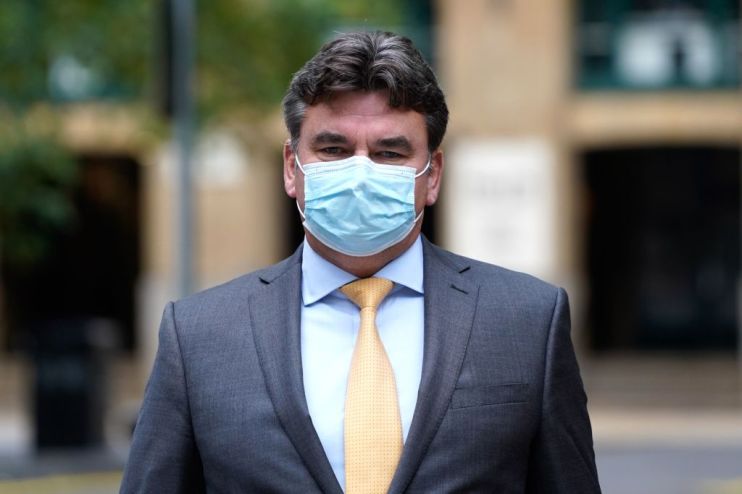Dominic Chappell evaded tax after buying BHS for £1, court told

Businessman Dominic Chappell “dishonestly chose” to evade tax on the £2.2m income he received from buying failing retailer BHS for £1, a court heard yesterday.
Chappell, who led BHS when it collapsed in 2016, is on trial at Southwark Crown Court on three charges of cheating public revenue relating to him and his bankrupt firm Swiss Rock.
The businessman is accused of dishonesty regarding VAT, corporation tax and income tax between January 2014 and September 2016. He denies all the charges.
Chappell was a key part of the consortium that bought struggling retailer BHS for £1 from business tycoon Sir Philip Green in 2015, just over a year before it collapsed in a high-profile scandal that resulted in 11,000 job losses.
Chappell ended up in his position because “he was simply too busy” to sort out his finances and was “let down by others”, the jury was told on the opening day of the trial.
Prosecutor Mark Bryant-Heron QC told the court Chappell had the means to pay his taxes but “dishonestly chose not to”.
“The conduct throughout the period discloses that tax was the last thing he was going to pay. He used the money to fund his lifestyle,’ Bryant-Heron said.
The court heard Chappell spent the cash on a £185,000 yacht, a Bentley Continental car, Beretta guns, a ski trip to Austria and a £95,000 payment to his wife.
The jury was told that over a 12-month period starting in 2015 Chappell and his company Swiss Rock received £2.2m in income and consultancy fees from the acquisition and management of BHS.
The court also heard the businessman received £300,000 into his personal bank account the day after the BHS deal was completed in March 2015,
Bryant-Heron told the jury that £500,000 had left Chappell’s and Swiss Rock’s accounts within the space of a week. “The money left really quite quickly,” he said.
He added: “In relation to VAT he did not even make any VAT returns as required to. He ignored his duty and legal liability to pay tax, until eventually HMRC had to take enforcement action to wind up the company for non-payment.”
The court heard Chappell became concerned in 2016 about the quality of the advice he had received, believing the accounts and the tax liability were “misstated”.
“More specifically, his case is that he was misled by the gentleman who sold BHS to him, Sir Philip Green,” said Bryant-Heron.
This related to whether the substantial BHS employees’ pension fund deficit — which existed at the time of the sale — would be paid up by Green to the satisfaction of the pension regulator before the BHS sale took place.
Bryant-Heron said: “Dominic Chappell maintains that BHS was forced into liquidation because of the actions of Sir Philip Green in reneging on promises of financial support for the pension fund, and going back on a promise to provide working capital to BHS after the sale.”
“His case is, in short, that had BHS not failed, he would have had the funds to pay his tax liability.”
Chappell denies the charges. The trial continues.
Before the Open: Get the jump on the markets with our early morning newsletter